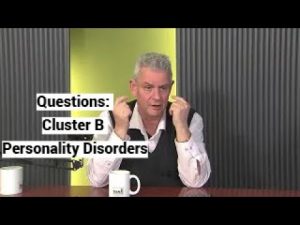Autists Lack Empathy, “Empaths” Deceive, Manipulate
1. Autism Spectrum Disorder (ASD) and Empathy Deficits
- The speaker emphasizes that people on the autism spectrum demonstrate a lack of empathy comparable to narcissists and psychopaths, supported by over a decade of scientific research [00:10].
- A recent study on children as young as 2-4 years old shows autistic traits are linked to impaired theory of mind (mentalization) and difficulties in self-conscious emotions such as shame and guilt [04:25].
- Empathy depends heavily on self-conscious emotions like guilt, embarrassment, and shame; autistic children show deficits in these areas, leading to poor social functioning [08:20].
- Findings demonstrate that autistic children often exhibit verbal shame-like avoidance rather than guilt or embarrassment, which appears to be constitutionally absent, not caused by theory of mind deficits [25:40].
- The developmental trajectories of autism, narcissism, and psychopathy in early childhood share similarities, suggesting a possible common underlying factor, though mechanisms remain unclear [28:10].
- The speaker argues that autistic children, like narcissists, utilize narcissistic defenses early in life as a reaction to social ostracism or trauma [19:30].
2. Narcissism and Psychopathy Relation to Autism
- Narcissistic defenses serve as mechanisms to avoid shame by blaming others and insisting on personal perfection, which parallels behaviors seen in autism spectrum disorders [19:40].
- Psychopaths, narcissists, and autistic individuals demonstrate relational disorders characterized by deficits in understanding others’ emotions and intentions, impacting social interactions severely [30:00].
- There is a call for further study on the common denominators across these disorders during early childhood development [28:45].
3. So-Called Empaths as Narcissists and Psychopaths
- The speaker criticizes the notion of “empaths,” arguing they are frequently covert narcissists or psychopaths who use deceptive virtual signaling to manipulate others [35:00].
- A recent study found that self-identifying as highly sensitive (often linked to empaths) is frequently a manipulative tactic used by individuals with dark personality traits like narcissism, psychopathy, and Machiavellianism [37:20].
- The expression of high sensitivity is often a calculated social strategy to influence and gain advantages from others by signaling victimhood [39:15].
- Genuine highly sensitive individuals tend to avoid public signaling and social interactions because of over-stimulation and vulnerability, contrasting with the manipulative tactics of narcissists posing as empaths [43:05].
- The study revealed a weak but significant correlation between signaling high sensitivity and traits associated with narcissism, such as behavioral inhibition and reward-seeking motivation [44:00].
- Individuals with dark personality traits employ high sensitivity signaling to garner special treatment and elicit sympathy, confirming the deceptive interpersonal strategy hypothesis [48:20].
- The majority of people signaling high sensitivity online likely exhibit narcissistic and psychopathic traits, though a small minority may have genuine sensitivity [49:45].
4. Conclusion and Speaker’s Position
- The speaker embraces his role as a controversial figure for presenting politically incorrect but evidence-backed views on autism, narcissism, psychopathy, and empaths [00:05, 50:30].
- He encourages viewers to critically assess popular narratives about empathy, victimhood, and personality disorders, highlighting the scientific evidence over popular opinion [00:15, 50:40].
Note: All timestamps refer to the elapsed time in minutes and seconds from the start of the transcript.






